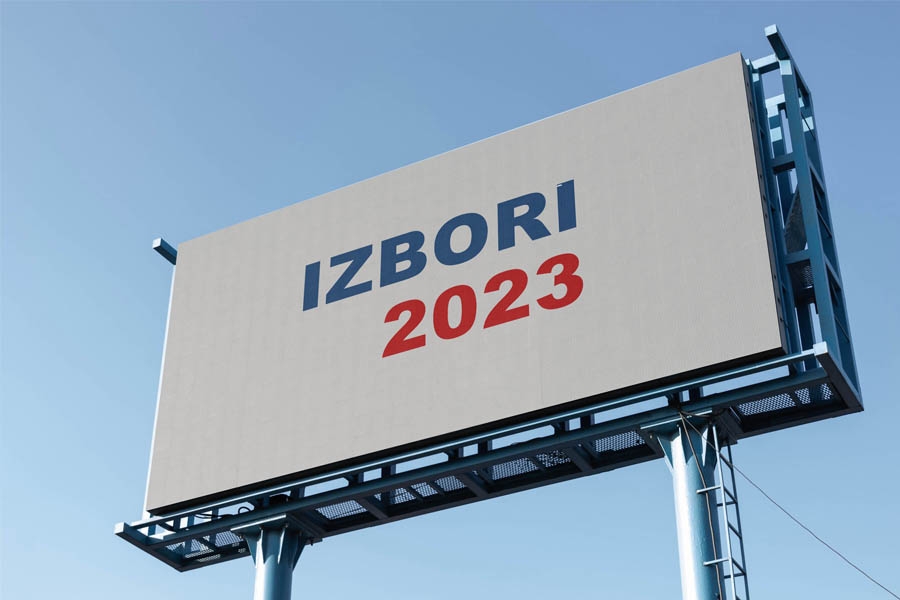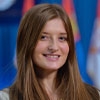Broadcasters with national coverage are obliged to, in the pre-election period, non-discriminatively and in an equal and balanced way, enable political actors to communicate their opinions to voters. Televisions are obliged to clearly mark the pre-election program, as well as to publish tariffs for political advertising, if they decide to publish this type of advertising during the campaign. During the election campaign, all media should respect media pluralism and give all actors the opportunity to articulate their views and goals, Rade Veljanovski, a retired professor at the Faculty of Political Sciences, told Demostat. The regulatory body for electronic media (REM) will monitor the reporting of public services, television with national coverage (Pink, Happy, Prva and B92), as well as four cable broadcasters - K1, N1, Nova s and Al Jazeera Balkans, said Višnja Andjelkovic, member of the REM council, for Demostat. He points out that REM through reports has the ability to warn of irregularities. Veljanovski points out that Serbian regulations are good, but that they need to be respected by all actors in pre-election campaigns, especially the regulatory body.

Broadcasters with national coverage are obliged to, in the pre-election period, non-discriminatively and in an equal and balanced way, enable political actors to communicate their opinions to voters. Televisions are obliged to clearly mark the pre-election program, as well as to publish tariffs for political advertising, if they decide to publish this type of advertising during the campaign. During the election campaign, all media should respect media pluralism and give all actors the opportunity to articulate their views and goals, Rade Veljanovski, a retired professor at the Faculty of Political Sciences, told Demostat. The regulatory body for electronic media (REM) will monitor the reporting of public services, television with national coverage (Pink, Happy, Prva and B92), as well as four cable broadcasters - K1, N1, Nova s and Al Jazeera Balkans, said Višnja Andjelkovic, member of the REM council, for Demostat. He points out that REM through reports has the ability to warn of irregularities. Veljanovski points out that Serbian regulations are good, but that they need to be respected by all actors in pre-election campaigns, especially the regulatory body.

According to the Law on Electronic Media, media service providers, including television with national coverage (Pink, Prva, Happy and B92) are obliged to ensure that registered political parties, coalitions and candidates are represented without discrimination in the pre-election program during the election campaign, as well as to clearly mark the pre-election program.
It is forbidden to secretly publish a pre-election program in the form of a news, entertainment program or program of another kind.
Televisions are obliged to publish tariffs for political advertising even before the beginning of the election campaign, if they decide to publish this type of advertising during the campaign.
The criteria by which the price of political advertising is determined and the terms of payment must apply to all candidates in the elections and all applicants of the declared electoral lists, i.e. proposers of the declared candidates, and must be published.
When it comes to publishing the results of the public opinion survey, televisions should announce who ordered and paid for the survey, who conducted the survey, the choice of the methodology of work, the number of respondents and the possibility of error in the given survey, as well as the date when the survey was conducted.
According to the new law, thirty days before the Election Day, the media cannot report on official public gatherings at which infrastructure and other facilities are opened, i.e. marks the beginning of the construction of such facilities, if public officials who are candidates for the president of the Republic, MPs, deputies in the assembly of the autonomous province and councilors in the assembly of the local self-government unit participate in these gatherings.
This prevents the impact of the campaign.
Rade Veljanovski, a retired professor at the Faculty of Political Sciences, told Demostat that all media, including television with national coverage, must respect media pluralism and give all actors the opportunity to articulate their views and goals.
As he explains, the new law on electronic media insists on allowing political actors to communicate their opinions to voters in an equal and balanced way and in a non-discriminatory manner in the pre-election period.
He points out that commercial televisions do not have to have terms in which they will promote videos and recordings of political parties, as during this election campaign they decided to do cable televisions Nova s and N1.

Photo: Medija centar Beograd
Veljanovski points out that it rarely happens, however, because it is in the interest of televisions to broadcast pre-election videos, since this is done on commercial terms.
By law, all televisions that intend to give time to political competitors must publicly announce the terms and price list, which was not the case over the previous period.
Veljanovski states that, when it comes to terms given under commercial conditions, televisions should not allocate the largest number of terms to one party, but should allocate them evenly.
”If there is interest from the parties, then television must respect the ratio of proportionality, for example, if the SNS is currently the strongest party of, say, 50 terms, it can belong to 15, 16 terms, and the rest to the other parties”, Veljanovski said.
However, the professor points out that there are no provisions in the new law to prohibit negative campaigning.
Veljanovski says the most important thing is to ensure equal and non-discriminatory representation of the parties.
Recalling that the new law has changed that there is no official campaign a month before the elections, Veljanovski also states that without it, officials should behave responsibly and correctly, but also that the media refrain from reporting in these cases.
Veljanovski states that the regulations in Serbia are good, but that it is necessary to act on them, and that, above all, when it comes to television with national coverage, should be done by REM.
Member of REM Council Visnja Andjelkovic says for Demostat that the monitoring and analysis team of the regulatory body for electronic media will continue to monitor the campaign this year on public services, on all four national - licensed TV stations and four cable operators-K1, N1, Nova s and Al Jazeera Balkans.
Andjelkovic points out that the REM Council made this decision by a majority vote.
Therefore, the monitoring and analysis team will publish periodic and final reports.
She points out that REM through reports has the ability to warn of irregularities.

According to the Law on Electronic Media, in case of probable violation of the law or other regulations governing the conduct of media service providers in connection with the election campaign, REM is obliged to initiate an investigation procedure within 48 hours after knowledge of the mentioned facts and circumstances, and can impose a number of different measures.
The rulebook on the manner of performing the obligations of Public Media Services during the election campaign states that the election program must be separated from the rest of the program by an announcement and check-out and clearly marked with a text notification during the entire duration of the program.
The public media service is obliged to ensure their representation in the program without discrimination when informing about the electoral activities of the submitters of electoral lists and candidates, having in mind the importance of political parties and candidates, i.e. the importance of events in which they participate.
The information must be true, objective, complete and timely, the regulations state.
RTS and RTV are obliged to act in the regular news program, as well as in special broadcasts dedicated to the election campaign, in accordance with the principles of impartial, fair and balanced representation of political entities, i.e. electoral lists and candidates in the elections.
Also, media services should organize radio and television duels or confrontations respecting the rule of balance of power and opposition, as well as the rule of balance within the opposition, based on previous election results of non-parliamentary parties, political movements and individuals, as well as the results of public opinion polls, in order to discuss certain current political issues in the form of discussions.
They are obliged not to publish negative campaign content of any submitter of the electoral list or candidates in relation to other submitters of electoral lists or candidates.
The public media service is obliged to show political advertising messages of all interested submitters of declared electoral lists and candidates under equal program, technical and financial conditions.
If several applicants of the declared electoral lists or candidates are interested in showing their political advertising messages in the program, and there are no technical conditions for their interests to be satisfied in full, the public media service is obliged to allocate the time intended for political advertising to the applicants of the declared electoral lists or candidates in proportion to their expressed interest and political relevance.
The advertiser is responsible for the content, truthfulness and accuracy of political advertising, and for its compliance with the provisions of the law governing the manner of displaying the advertising message, the public media service is responsible.
The electoral campaign supervisory board is a body that monitors pre - election activities and points out irregularities in the conduct of participants in the electoral process-political parties, submitters of declared electoral lists, candidates for deputies and Public Media Services.
The Supervisory Board, which is constituted by the Serbian parliament according to the law on the election of MPs, has ten members, half of which are proposed by the Government of Serbia, and half by the parliamentary group from the ranks of prominent public workers.
The members of the Supervisory Board for the election campaign for the December elections are, as published on the website of the National Assembly: Svetislav Goncic, director of the National Theatre in Belgrade; Aleksandar Milosavljevic, PhD in Political Science; PhD Professor Dragan Vucinic, Full Professor; PhD Jovanka Matic, PhD of Political Sciences; PhD Slobodan Prvanovic, scientific advisor; PhD Professor Branko M. Rakic, Full Professor; PhD Professor Miodrag Savovic, advisor for legal issues; PhD Professor Bojan Tubic, Associate Professor; Mr Vojin Vucicevic, Master of Economic Sciences; Aleksandar Stamatovic, Opera champion.
The election campaign will last until December 14th, at midnight.
In all societies there are issues that are rather being skipped. Certain...
The neoliberal path, started in 2001, has led to especially bad results in Serbi...
For centuries, the region was subsumed within the Ottoman and Hungarian Empires,...
"Serbia has returned to the systemic and anti-systemic position of the political...
In reality, Serbia is closer than ever to NATO. In the course of the last five y...